
School life
English speech contest
Every year, students are encouraged to participate and challenge themselves in various English speech contests here at Jumonji. Themes do vary from grade to grade, such as future aspirations and respected persons, to global issues, like saving the environment and Japan's ageing population. Students work hard not only in writing their speeches, but also on delivery - pronunciation and intonation. Each year, the school's native English language teachers are invited to help judge and critique students' performances. There are times when most students have done equally well, making it very difficult to decide on who will take first prize. Although we only announce the top three places, we encourage all students to participate in future speech contests. At the end of the day, what's important is seeing the students working hard on things that they care about and are important to them. We also see students' other talents shine through the speech contests such as a surprise dance number followed by a speech on her favorite artist - such dedication and effort to strive beyond is always encouraged. We hope to see many new and returning faces in the next English speech contests.
Learning western pop culture in class
Learning a new language is never an easy thing to do, especially a language that has a completely different phonetic and writing system, such as Japanese and English. Students have started to enjoy their English classes more and more after introducing western pop culture like songs and books. Students enjoy learning new English songs the most, especially catchy songs from Disney, which you will hear them, singing after class, between classes and during lunch with their friends. We believe learning a language through different pop cultures, traditions and cultures is an excellent way to immerse oneself into the language learning process. English as a modern language is constantly changing with the influences of culture and its speakers, which is an interactive way to introduce things outside of the textbook and get students to be more active in learning and communicating in another language like English.
School trip to Lake Kawaguchiko
Jumonji Junior and Senior High School students have many opportunities to bond with their fellow peers throughout their life at Jumonji. Excursions such as overnight trips to other prefectures in Japan are always highly anticipated by students and teachers. The first overnight excursion students ever experience is at Lake Kawaguchiko in Yamanashi Prefecture. The purpose of the trip is for students to bond and make friends with their new classmates. The teachers prepare many fun team-building activities such as making curry and rice from scratch. In recent years, the JET language teacher from Australia was invited to join and prepare an English activity for the students, which was an excellent way to learn about both their new friends and English. Keeping the students English levels and abilities in mind, the activity focused on conversational English, and was short and simple so that anyone could easily participate. Students talked to as many of their peers in English, and many were agreeing or surprised from the information they had just learnt. Some were shy and quiet, but soon warmed up when they were approached by their peers. At the end of the activity, not only had the students learnt new things about their new friends, but the teachers were able to learn more about the students' likes and dislikes, and their personalities. This first trip makes a wonderful and memorable experience for both the students and teachers, with each year being unique and unforgettable.


School life at Jumonji
Jumonji Junior and Senior High School is located on the same campus, where students finishing 3rd year junior high, can continue onto 1st year senior high without having to take a school entrance exam. The school has been represented by students in many competitions and events, and very recently, the Jumonji soccer team winning the 25th All Japan High School Women's Football Championship.

When students arrive at school, they have to change into their sport jerseys for the daily morning exercises. These are easy yet effective stretches that will wake up any sleepy child and makes for a great start to the day. Both students and teachers spend ten minutes every morning doing these stretches so that both are awake and feeling refreshed for class.
The school years starts in April and ends the following year in March. There are seven lessons in a day, each 45 minutes long with a 10 minute break in between. After school, students participate in their school club activities. There are over 35 clubs for students to choose and join, with sport clubs such as dance, swimming and soccer clubs being very popular. Other clubs like the drama and music club are also great options for students who may not be interested in sports. Types of clubs vary from the most traditional tea ceremony and flower arranging, to playing the mandolin and mountain climbing. During club activities, students interact with students from other grades and classes, as well as compete in competitions together.
During lunch, students eat lunch brought from home in classrooms with their friends. Most students enjoy the obento-style lunch, usually consisting of rice and sides. They can also buy bread or rice balls at the food shop by the cafeteria. Students who don't bring lunch from home can buy hot meals served at the school cafeteria. These are made by the school's cooks who plan meals based on their nutritional value, so that students are getting the energy they need. The menu changes from day to day, so students have many to choose from.
Students also run many school events, such as the Jumonji Festival and Sports Day. The school festival is one of the biggest events that is organized by both teachers and students, and is a two day event open to the public, showcasing students' talents in many different aspects. There are performances by the school's baton, mandolin and dance clubs and the volley ball club also holds games against neighboring high schools. Many Jumonji graduates, friends and family also come to the festival to see the students' showcases and performances.
The students, teachers and staff at Jumonji Junior and Senior High School are always preparing for upcoming school events and exams. There is always something to look forward to and do every day, especially during the changing seasons and weather. School life at Jumonji is unique to every student, but together, is what makes Jumonji the school it is today.







Club Activities

Basketball Club

Vollyball club

Badminton club
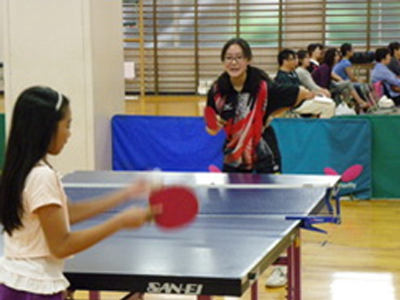
Table Tennis Club

Soft tennis club
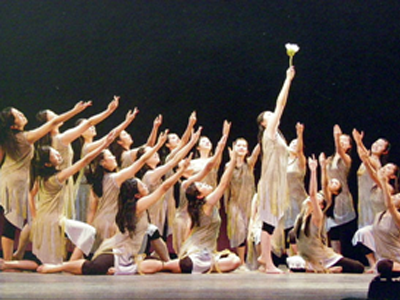
Dance club
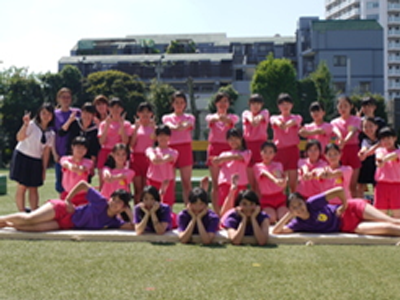
Gymnastics club
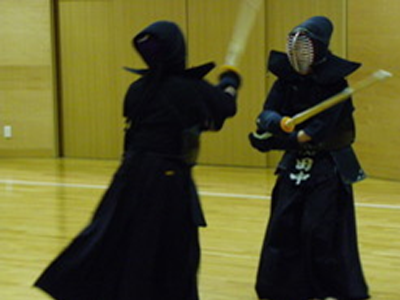
Kendo club
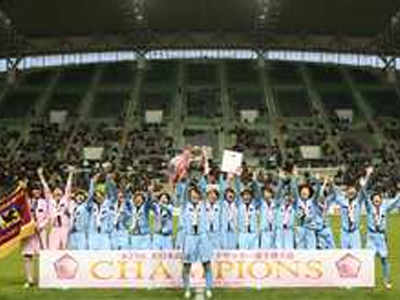
Soccer club
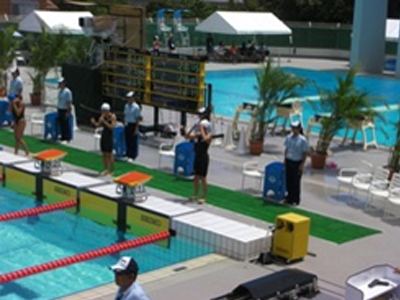
Swim club
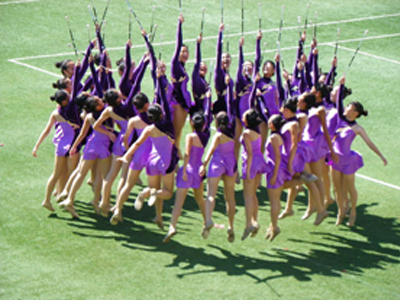
Baton club
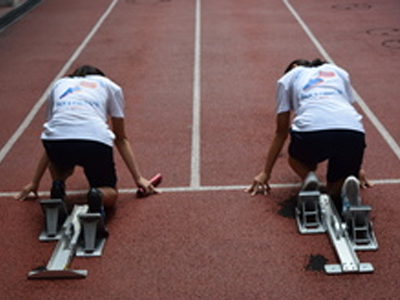
Track and Field club
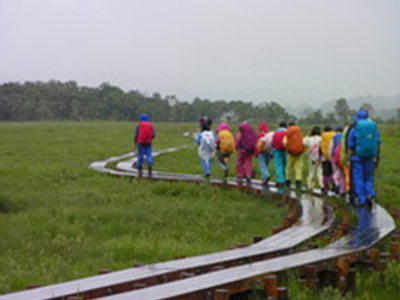
Hiking club
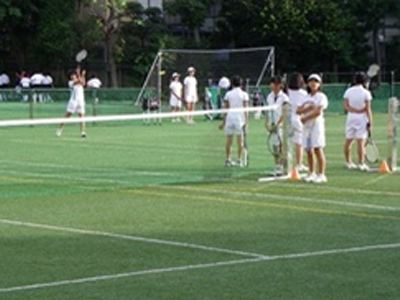
Tennis club
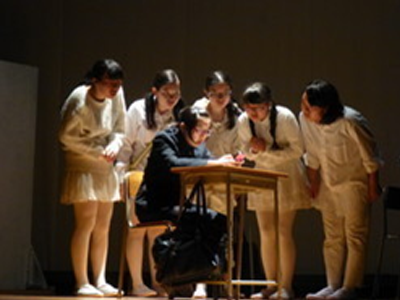
Drama club
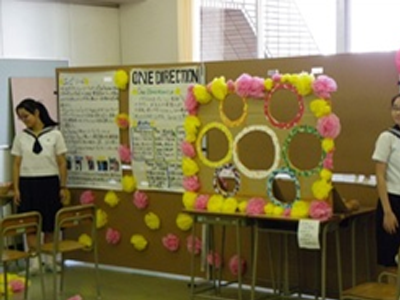
English club
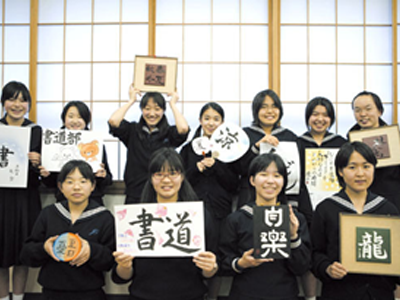
Calligraphy club

Mandolin club

Photography club
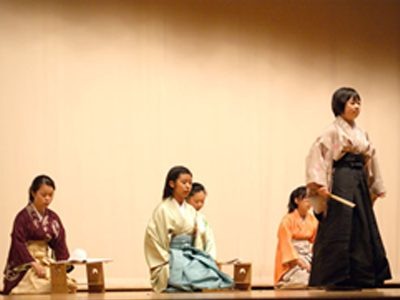
Noh club
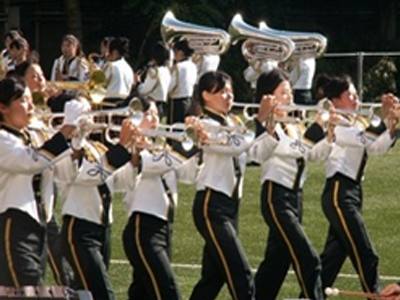
Brass Band club
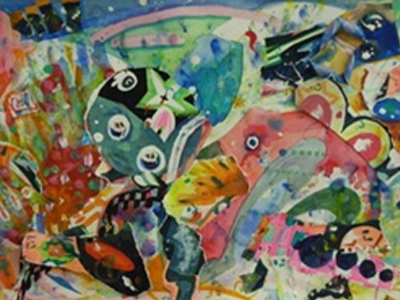
Art club
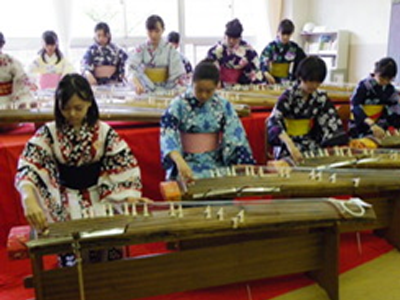
Koto club
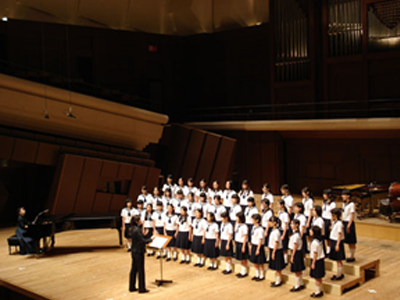
Music club
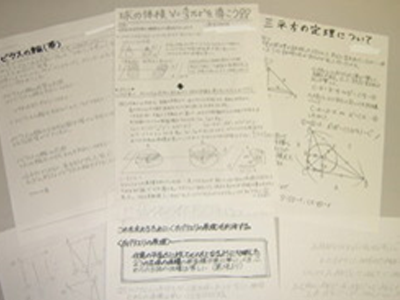
Maths club
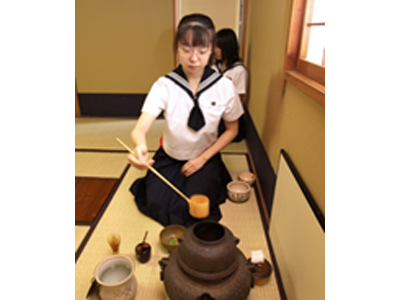
Tea ceremony club
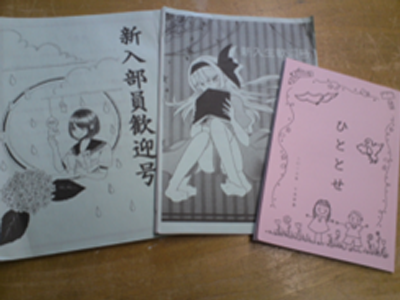
School Newspaper club
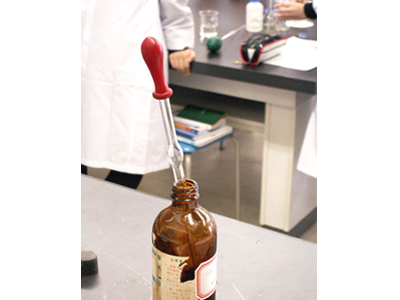
Biology club
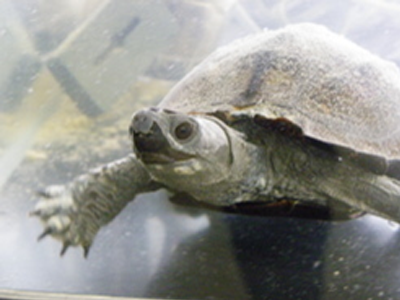
The living world club
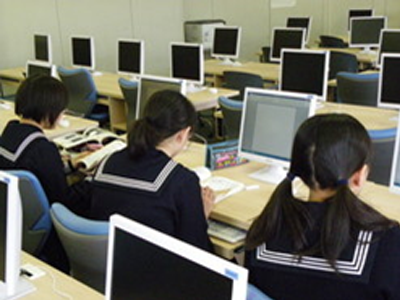
Computer club
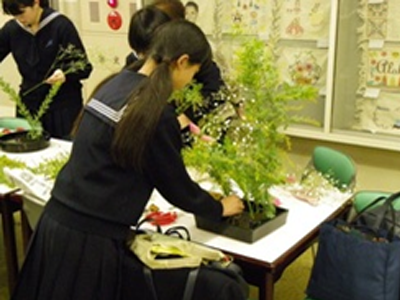
Flower arrangement club
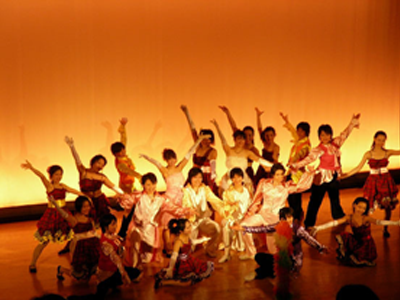
Musical theatre club
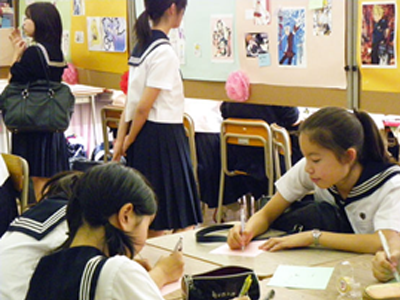
Manga club
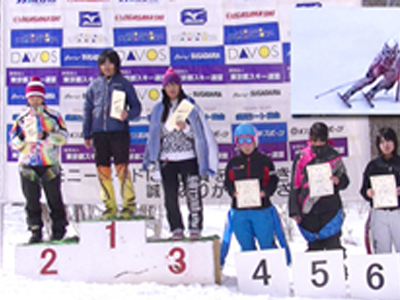
Ski club
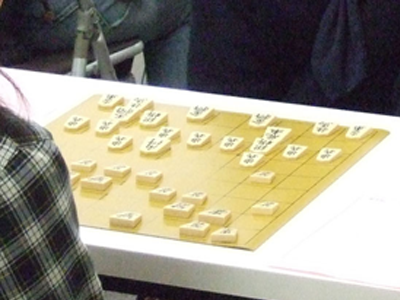
Go club
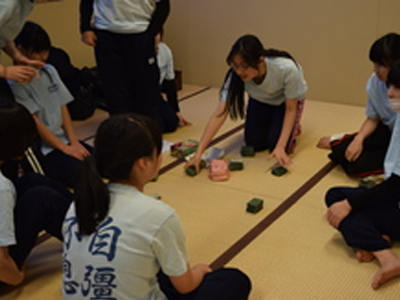
Karuta club
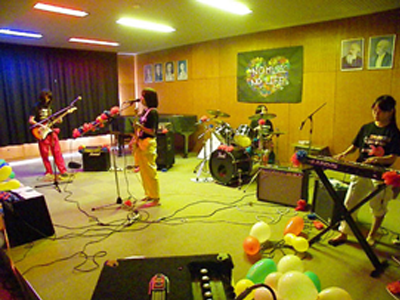
Rock club
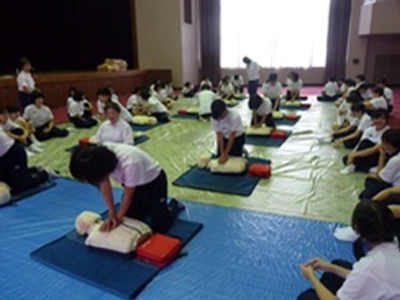
Junior Red Cross club
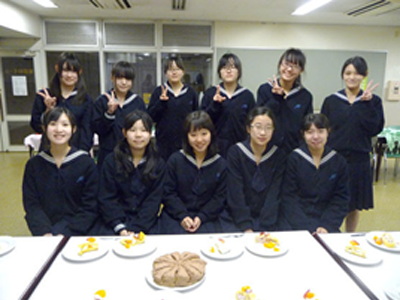 Home Economics club
Home Economics clubSchool Events
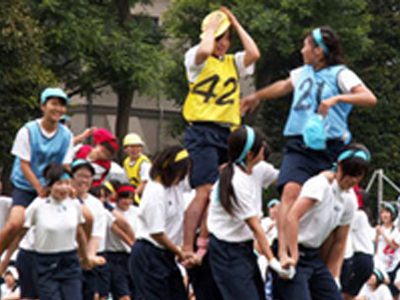
Sports day
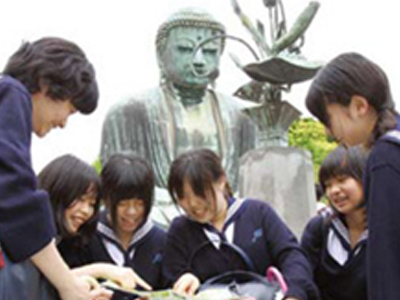
School field trips
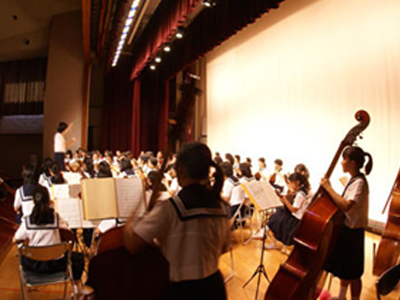
Cultural festival
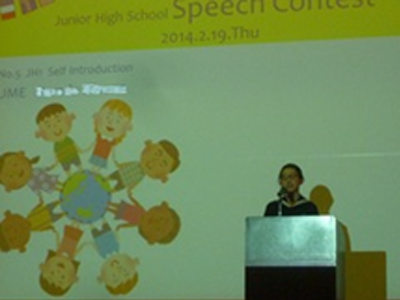
Speech contest
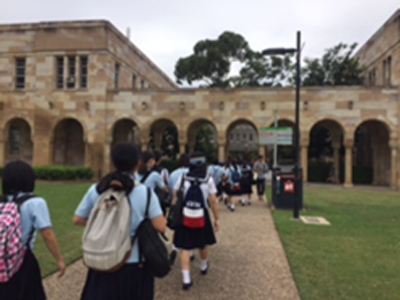
Australia school exchange
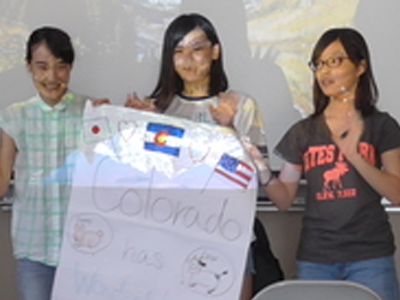
Colorado school exchange